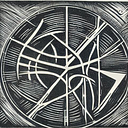Member-only story
How to End Poverty in a Poker Game Economy
By recognizing capitalism as a zero-sum game, the best solutions to poverty become self-evident
I recently had an argument with an old coworker of mine on the subject of “taxing the rich.” It was the opinion of my friend that freedom is the most important American ideal and that taxing the rich disproportionately would be an assault on that freedom.
“If I make a billion dollars through my own hard work and intelligence,” he said, “why should I have to give away a penny of it to anyone?”
Economic freedom is of course worth defending, and almost nobody would find pure equality — communism — desirable. We want to be able to advance ourselves through hard work and talent to increase our own prosperity, but what my coworker probably knows— but doesn’t fully appreciate— is that the American economy is something like a poker game. Every citizen is a player. At any given moment, there is a finite amount of money distributed between all of the players, and everyone is doing their best to increase their own share, at the necessary expense of everyone else.
There are some who would object to this assertion. “If the economy was a zero-sum game, there would be no growth!” they say. Aside from the fact that the Earth does not have unlimited…
